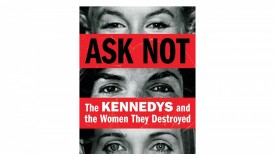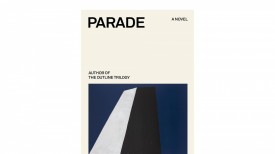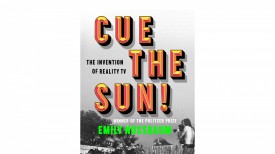'Mania' by Lionel Shriver Book Review: A Provocative Satire on Society's Absurd Pursuit of Equality

Dive into the depths of obsession with our review of "Mania" by Lionel Shriver. Explore a gripping narrative that delves into the complexities of desire, ambition, and the human psyche, offering a thought-provoking exploration of extreme passions.(Photo : HarperCollins/Lionel Shriver)
In Lionel Shriver's latest offering, "Mania," readers are plunged into an alternate reality that satirizes the societal implications of the Mental Parity movement. Shriver's narrative is set in Pennsylvania, a place where the world grapples with the denial of stupidity and embraces the concept of 'alternative processing.' The story revolves around Pearson Converse, a contrarian lecturer whose life spirals out of control after a controversial video leak showcasing her rant against 'cognitive bigotry.'
The Author
Shriver, originally Margaret Ann, adopted her chosen name at 15 to break free from familial expectations. Born in North Carolina in 1957, she studied at Columbia University. She lived in various cities, including Nairobi, Bangkok, and Belfast, where she reported on the Troubles.
Shriver published several novels, including "The Female of the Species" and "Double Fault," without much commercial success. However, her breakthrough came with "We Need To Talk About Kevin" in 2003, a novel about a school shooting that initially faced multiple rejections but later won the 2005 Orange Prize.
Shriver's works often explore controversial topics, showcasing her knack for tackling complex issues with insight and depth. She is also a columnist for The Guardian. Upon her demise, she plans to bequeath her assets to the Belfast Library Board.
The Absurdity of Equality
According to The Guardian, the novel's backdrop paints a world where language-conscious liberals inadvertently fuel the rise of absurd ideologies, such as the belief that everyone's intelligence is equal. Shriver cleverly links this to real-world consequences, like the retrospective cancellation of beloved shows like "Frasier" and even tens of millions of COVID-19 vaccine deaths due to skewed employment practices.
This speculative fiction serves as a biting commentary on society's growing preoccupation with political correctness at the expense of critical thinking.
Personal Chaos Amidst Societal Upheaval
Pearson's life turns chaotic when she inadvertently uses the term 'dumb' to describe her daughter, Lucy. Social services intervene and require a mandatory course in 'cerebral acceptance and semantic sensitivity.' Pearson's husband, Wade, also faces the absurd consequences of the Mental Parity movement when he hires an unqualified assistant, resulting in a near-fatal chainsaw incident.
A Complex Frenemy Relationship
An article by The New York Times said that amidst the chaos, the core of the novel lies in the relationship between Pearson and Emory Ruth, her 30-year frenemy. Emory, a television presenter, capitalizes on Pearson's downfall, epitomizing the opportunism that underpins the Mental Parity movement. As Pearson grapples with her public humiliation and Emory's betrayal, the novel explores themes of morality, opportunism, and the human capacity for self-delusion.
The Novel's Shortcomings
However, "Mania" falls short of Shriver's previous successes, like "We Need to Talk About Kevin." While the novel attempts to critique societal trends, it often feels heavy-handed. It lacks the nuance required for effective satire. Pearson's character, with her lengthy and antiquated vocabulary, can come across as insufferable rather than insightful.
Moreover, the world-building feels rushed, with the rapid adoption of the Mental Parity ideology by all, regardless of political affiliation, stretching believability. Shriver's attempts at parody often feel forced, overshadowing the intriguing dynamics between Pearson and Emory.
In conclusion, "Mania" is a provocative exploration of a world gone awry due to misplaced idealism and moral relativism. Shriver's criticism of society's increasing obsession with using politically correct terms is very timely and of great interest. While the book's message is valid, the manner of its delivery is far from satisfactory, with blunt satire and shallow characterization diminishing its overall power.
Although "Mania" manages to offer certain profound observations, Shriver's latest piece of literature still cannot meet the standards of her previous work in many aspects.
RELATED ARTICLE: 'How to Win an Information War' by Peter Pomerantsev Book Review: Unraveling the Enigma of WWII Propaganda
© 2023 Books & Review All rights reserved.
Popular Now
1
Books to Read After 'Fourth Wing': Top Picks for Fantasy and Romantasy Fans

2
‘The Secret Public’ by Jon Savage Book Review: An Insightful Look Into the LGBTQ Influence

3
Stephanie Regalado's 'If They Only Knew' Column Is Now A Book, Unleashing 60 Anonymous True Stories to Empower Women

4
'No Wire Hangers' Scene That Almost Did Not Happen: New Book Reveals Faye Dunaway's Struggles

5
Rare First Edition of Aphra Behn's Novel 'Oroonoko' Discovered in Kent: A Historic Literary Find

Latest Stories
Book Reviews
‘The Secret Public’ by Jon Savage Book Review: An Insightful Look Into the LGBTQ Influence

Book News
Stephanie Regalado's 'If They Only Knew' Column Is Now A Book, Unleashing 60 Anonymous True Stories to Empower Women

Book News
'No Wire Hangers' Scene That Almost Did Not Happen: New Book Reveals Faye Dunaway's Struggles

Book Reviews
‘The Perfect Couple’ by Elin Hilderbrand Book Review: A Captivating Summer Mystery

Book News
New Book ‘The Franchise’ Reveals Penguins President Kyle Dubas’ ‘Biggest Mistake’ as Maple Leafs GM











